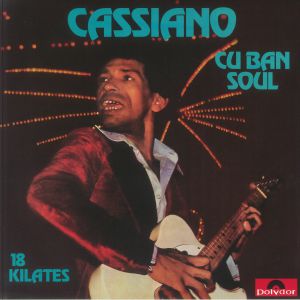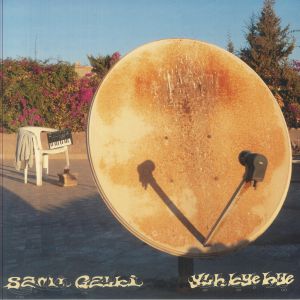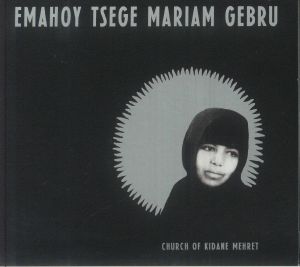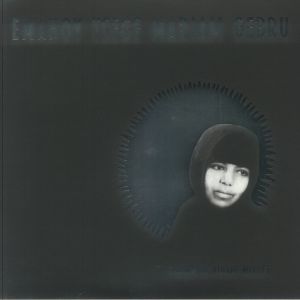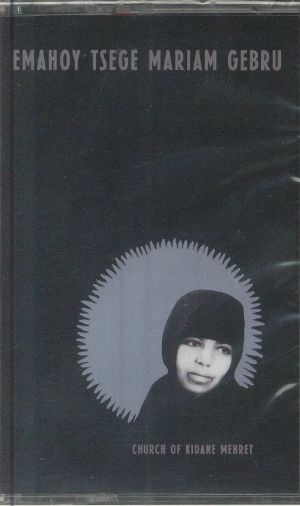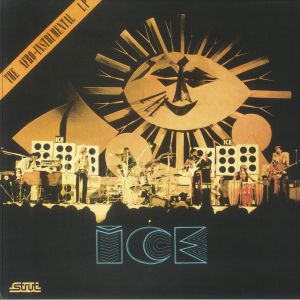Filter
Stock
Label
Featured
Release Title
Price
Tags
New releases last four weeks: International
International vinyl released in the last four weeks in stock ₺692,41
in stock ₺494,65
Review: On Club Tounsi, Tunisian producer Sofyann Ben Youssef, aka AMMAR 808, brings the raw rhythmic power of Mezoued-the folk music of Tunisia's working class-into a bold electronic future. Fusing pulsating synths, distorted textures and TR-808 beats with traditional instruments like goatskin bagpipes, hand drums, and the ney, he reimagines iconic Mezoued tunes for a new generation. Vocalists from classical, Sufi and Mezoued backgrounds also feature to add human soul and mean the album captures the genre's emotional depth while transforming it into something cinematic and club-ready. This LP is a bridge between past and future, tradition and innovation and one that makes you want to move.
… Read more in stock ₺911,78
Barretto (50th Anniversary Edition) (180 gram vinyl LP in fold-out sleeve)
Cat: CR 00888. Rel: 08 May 25
Review: Craft Latino celebrates the 50th anniversary of the landmark 1975 salsa album by Ray Barretto with a deluxe reissue. This remastered edition of Barretto features the debut of Ruben Blades and Tito Gomez and includes iconic tracks like 'Guarare,' 'Ban Ban Quere' and 'Canto Abacua.' It has long been considered a cornerstone of the genre in which Barretto blends rich Afro-Cuban rhythms with lyrical depth and masterful musicianship from legends like Sly & Robbie and Augustus Pablo. It's a real bit of Latin music history that shines bright and is packed with shuffling rhythms and the sort of expressive percussion and horns that take you to a different continent in an instant.
… Read more in stock ₺1.461,28
in stock ₺1.153,84
Review: Tresor Magnetique is a treasure trove of unreleased tracks by the late great Francis Bebey-an international artist whose visionary work defies time and continues to add standout energy to eclectic DJ sets everywhere. These recordings have been digitised from fragile tapes found by his son and restored at Abbey Road Studios and blend pygmy flutes, drum machines, folk guitars and electronic textures in daring, genre-defying ways. Rather than a retrospective, this feels like an ongoing conversation that keeps Beby's work urgent and vital and prove Bebey wasn't just ahead of his time, he transcended it, from the lo-fi drum track magnificent of 'Quand Le Soleil Est La' to the raw, textured tropical funk of 'Where Are You? I Love You.'
… Read more in stock ₺1.252,45
in stock ₺834,79
in stock ₺1.329,44
TEN (180 gram vinyl 2xLP (soundfiles not available))
Cat: CS 011. Rel: 15 May 25
Rabat
Federation Tunisienne De Football
Fan For A Twenty Years Old Human Being
A World Of Wonder
C'mon Tigre
December
Commute
Queen In A3
Life As A Preened Tuxedo Jacket
Building Society - The Great Collapse
Building Society - Renovation
Welcome Back Monkeys
Malta (The Bird & The Bear)
in stock ₺2.108,86
Review: Candeleros is a six-member, Colombia- and Venezuela-rooted collective based in Madrid that fuse Cumbia, merengue, dub and an array of Afro-Caribbean rhythms, creating a psychedelic, postmodern celebration of Latin sound. Their music blends Andean echoes, cinematic textures and hypnotic percussion into what feels like a ritualistic dance experience and has seen them collaborating with artists like Dodosound and Carlos Talez. They always reject the usual genre boundaries while focusing on cultural activism and the power of collective expression and have performed across Europe. As this album shows, their sound is passionate, borderless and proof that Cumbia has truly rooted itself in Europe.
… Read more in stock ₺1.516,13
Review: Cassiano's Cuban Soul - 18 Kilates was first released in 1976 and is a landmark of Brazilian soul for the way it blends the groove of American r&b with native rhythms in a way few artists have matched. Long coveted by collectors, the album has achieved cult status and now returns remastered from the original tapes on 180g vinyl so it is sure to fly off the shelves. Cassiano's velvety vocals glide over lush, cinematic arrangements throughout and in doing so, evoke the grandeur of contemporaries like Tim Maia. From start to finish, this album is packed with depth, warmth and effortless cool, which makes it an essential listen for anyone who likes soul, samba and vintage Brazilian brilliance.
… Read moreGespielt von: DJ ROCCA
in stock ₺1.032,55
Cat: BWOOD 0393. Rel: 01 May 25
Review: New York legend and Body & Soul man Joe Claussell is first to land on this new Brownswood Remix Edition as he drops a Sacred Rhythm mix of his own tune with Cuban singer Dayme Arocena. It offers a fresh perspective on the original timeless composition with drawn-out drums leading to a signature spiritual rapture. On the flip is a dynamic reinterpretation of Gilles Peterson's Havana Cultura Band by German artist Motor City Drum Ensemble, who now goes under his birth name. He brings some dusty house drums to make for a perfectly flavoursome sound for outdoor dancing.
… Read more in stock ₺702,95
Azucar & Salsa (limited hand-numbered 180 gram pink marbled vinyl LP)
Cat: MAGICOFVINYL 3589. Rel: 02 May 25
Review: Celia Cruz is widely known as the Queen of Salsa, and Azucar & Salsa is a perfect celebration of her iconic voice and the unique spirit she brings to her work. The album finds her at her most electrifying and fuses the driving rhythms of salsa with her unmistakable charisma, with the results being a high-energy mix of percussion, horns and powerhouse vocals. Tracks burst with salsa colour and are anchored by Cruz's signature cry of 'iAzucar!'-a joyful call to life and rhythm which you will soon be shouting yourself. Cruz's presence is magnetic here, whether commanding the dancefloor or weaving emotional depth into ballads. Whether you are new to her work or a diehard fan, Azucar & Salsa isa fine tribute and reminder of why her music still moves new generations.
… Read more in stock ₺1.043,62
Only They Could Have Made This Album (Record Store Day RSD 2025) (180 gram vinyl LP)
Cat: CR0 0879. Rel: 23 May 25
in stock ₺1.581,52
Quem E Quem (reissue) (180 gram green vinyl LP)
Cat: 333081 LTD. Rel: 06 May 25
Review: Quem E Quem is widely regarded as Joao Donato's finest work and a standout in the canon of Brazilian popular music, aka MPB. Blending American soul and jazz-funk influences with the gentle sway of samba and bossa nova, the album radiates warmth and subtle sophistication and Donato's tender vocals are framed by breezy flute passages, laid-back piano lines and guitar solos reminiscent of Pat Metheny. The result is a beautifully balanced collection of upbeat tracks and introspective moments with each evoking the tranquil pleasure of a sunset in a tropical paradise. Timeless and effortlessly charming, it remains a high point in Donato's enduring career.
… Read more in stock ₺1.900,56
in stock ₺1.493,98
in stock ₺736,18
Brazil/Mondo Disco/Let's Get It Together/Cocomotion (2xCD with obi-strip)
Cat: CDSOL 71922. Rel: 08 May 25
in stock ₺1.604,19
in stock ₺878,56
in stock ₺560,57
in stock ₺878,56
in stock ₺1.065,77
Review: Recorded in collaboration with Nils Frahm at Berlin's Leiter Studio, Ganavya's fourth album is destined to carve its own path to recognition due to its unique quality. A follow-up to last year's acclaimed Daughter of a Temple, which drew praise from many music outlets, Nilam - probably best known her for her appearance alongside Sault at their recent live show - continues her journey into music as devotion, meditation and memory. Born in New York and raised in Tamil Nadu, she moves fluidly between traditions, channeling pilgrimage trails, harikatha storytelling and jazz improvisation into something uniquely her own. Her voice is unhurried, intimate and full of clarity, conjuring stillness even in motion. It's a sound that invites stillness but never feels static, where every breath carries the weight of generations and each silence says as much as her lyrics. The songs on Nilam feel distilled from years of lived experience, shaped by years of live performance as tracks like 'Sees Fire' blend Eastern tonalities with meditative jazz, fusing introspection with emotional firepower. The album traces the patterns of gratitude, loss and rootedness meanwhile anchoring the listener in a place beyond the physical. Rather than chase genre, ganavya reaches toward essence. Nilam isn't just an album, it's a moment held in reverence. A sonic altar where memory, spirit and sound meet. In her hands, song becomes a ritual of listening.
… Read more in stock ₺1.241,38
Review: Some 13 years have now passed since Mississippi Records started reissuing private press albums by Emahoy Tsege Mariam Gebru, an Ethiopian Orthodox nun, pianist and composer whose naturally religious-inspired works frequently took spiritual music to fascinating new places. Here the label turns its attention to 1972's Church of Kidane Mehret, notable not only for being recorded live in various churches across Jerusalem, but also for the use of harmonium and pipe organ as well as Emehoy's beloved piano. The original album, which in line with her other album features intricate and mood-enhancing solo translations of orthodox liturgies, has here been expanded via the inclusion of two further piano pieces from 1963's ultra-rare Der Sang Des Reeres - a set of which only 50 copies were ever produced.
… Read more in stock ₺538,42
Church Of Kidane Mehret (clear vinyl LP + booklet (indie exclusive))
Cat: MRI 214LPC1. Rel: 22 May 25
Review: Emahoy Tsege Mariam Gebru's deeply spiritual music has long remained a hidden gem and this release offers a rare chance to experience her most poignant works. Recorded in churches across Jerusalem, her performances on piano, harmonium and pipe organ transcend genre that blends Ethiopian Orthodox liturgy with the technical sophistication of her classical training. There's a serenity to these pieces, particularly in 'Ave Maria,' where her piano's crystalline chimes fill the sacred spaces, while 'Spring Ode - Meskerem' brings new life to familiar melodies, played through the rich drones of the harmonium. The collection moves from meditative to dramatic, with 'Essay on Mahlet' offering a slow, introspective journey as Emahoy translates the free verse of Orthodox liturgy into a delicate piano composition. The inclusion of 'The Storm' provides a moment of intense contrast, its stormy narrative unfolding through sharp, thunderous piano lines. Emahoy's ability to blend devotional themes with emotional depth is most apparent in 'Via Dolorosa,' where the music mirrors the weight of the stations of the cross with breathtaking gravity. Her music, though niche, stands out for its seamless fusion of Ethiopian spirituality with the grand traditions of Western classical music, feeling entirely distinct in its expression. The recordings, originally made in 1972, show a stark simplicity and restrained power that speaks directly to the soul. It's a rare treasure and an essential contribution to the world of spiritual music.
… Read more in stock ₺1.186,01
in stock ₺571,12
Review: Future Rootz has collaborated with Canal Sounds and EGREM for a gem of a reissue here that goes all the way back to 1977 when producer and bassist Jorge Soler stepped out as Grupo Yoyi for Yoyi, an album that marked his only known solo project. The record now sits up there as one of the rarest and most desirable albums from the Cuban musical canon as it is such a sublime fusion of Afro-Cuban rhythms with jazz, funk and disco. The musicianship throughout is exceptional with mesmeric synths and evocative horn solos all tethered to the sort of grooves that will either chill you out or heat you up depending on the setting.
… Read moreGespielt von: Charlie bucket/ dancing in space
in stock ₺1.153,84
in stock ₺604,34
in stock ₺1.131,69
Cat: STRUT 345LP. Rel: 01 May 25
Review: Popularly known to fans as "Ice" - a rare case of hypocorism in colloquial fan band nicknaming - Strut Recordings document a rare record from the vaults of the luminary Lafayette Afro-Rock Band, one that is arguably the closest in their catalogue to the signature sound defining their earlier work. Marked by an especially complex funk rhythmology, this record was pressed contemporaneously with the infamous Soul Makossa and Malik sessions; but compared to their earlier works, Afro Agban pushes deeper into jazz-rock territory. 'Ozan Koukle' has espceially become a known but coveted missing link for turntable taxonomists, who'll thank their lucky stars for the fact that it is now available in full.
… Read moreGespielt von: Mukatsuku Records Chart, Craig Charles Funk And Soul
in stock ₺922,33
Review: For five years, Acid Jazz has been showcasing Kevin Fingier's productions with each one carrying his signature Latin flair. It all began with 'Latin Dynamite', which sold out 15 days before its release and was followed by 'Cocktail de Medianoche' and 'Why Don't You Go Home', which were both instant sellouts. The second pressing of 'Latin Dynamite' included a fiery Latin rendition of the r&b classic 'It's Your Voodoo Working'. When Fingier released 'Not Strictly Soul,' it featured the Latin gem 'El Popcorn' which is now available on 7" for the first time. These four Latin Soul anthems are now united in one explosive Boogaloo EP that arrives just in time for summer.
… Read moreGespielt von: Craig Charles Funk And Soul
in stock ₺702,95
Review: Bosq's take on Konkolo Orchestra's 'Le Secret' feels like the moment when an Afrobeat anthem gets suited up for the club. Infused with his trademark Latin disco edge, the remix blends the rich pulse of Afro rhythms with sleek, dancefloor-ready beats. It's clear Bosq's move to Colombia has added a fresh sense of urgency to the track: percussion snaps with precision, while lush, warm keys wrap around the groove. The instrumental mix on the B-side strips it back, leaving only the track's hypnotic beats and intricate textures to breathe perfect for DJs looking to build atmosphere. This is Bosq's take on Afrobeat, refracted through his own shimmering lens, and it's infectious.
… Read more in stock ₺505,20
Review: La Pambele, Bogota's salsa dura ensemble, distills the spirit of 1970s salsa while threading modern-day stories through every track. Their energetic and heartfelt music is a celebration of the culture that's so intrinsic to their city, blending bold rhythms with lyrics that hit close to home. In a city often perceived as less rhythmically charged than the coastal regions, the band defies the stereotype, delivering tracks like 'Para No Olvidar' and 'La Bella Y La Culebra' that pulse with energy and authenticity. 'Naci Mestizo', the album's title track, sees La Pambele collaborate with the seasoned Afro-Colombian folklorist Nicoyembe, adding layers of cultural depth and richness that further root the sound in Colombian heritage. The mix of piano, conga, flute, and brass on songs like 'Amargura' and 'Son Cimarron' carries a nostalgic yet forward-thinking energy, embracing the past while pushing boundaries. There's a warmth and precision in the way the orchestra weaves traditional salsa with contemporary expressions, effortlessly moving between nostalgia and modern relevance, all while telling the story of the everyday Bogotano in its boldest form.
… Read more in stock ₺1.659,04
Torta De Pan (7")
Cat: VAMPI 45111EP. Rel: 06 May 25
in stock ₺538,42
in stock ₺1.263,53
Album No 1 (Id Ed Was) (remastered) (LP + insert)
Cat: WWSLP 104LP. Rel: 22 May 25
Review: Wewantsounds continues its deep dive into Algerian music with the first-ever reissue of Les Abranis' sought-after-by-those-who-know 1983 long player, Album No. 1. Originally recorded in Paris and privately pressed in small quantities, the album, which is also known as Id Ed Was, fuses Kabyle rhythms with funk and touches of reggae. This reissue has been curated by Cheb Gero (of recent Sweet Rebels compiling fame) and features remastered audio, though it retains the original artwork. It's a great line document of Algeria's diasporic groove with a two-page insert featuring fresh liner notes by journalist Rabah Mezouane.
… Read more in stock ₺1.439,13
in stock ₺2.108,86
in stock ₺1.131,69
in stock ₺945,01
Review: Continuing their mission to retrouve genres across the spectrums of Latin funk and cumbia, Original Gravity welcome back founding favourites Luchito and Nestor Alvarez with yet another sonic vitamin D pill, presaging the warmer days to soon come. Both sides tap into that rich 60s and 70s Afro-Carib crossover sound, with, at least on the face of it, no studio trickery in earshot (though careful listens reveal the method behind the majesty). Anyone with a weakness for brass-led Latin burner will melt on contact with this one.
… Read moreGespielt von: Craig Charles Funk And Soul
in stock ₺494,65
Gespielt von: Mukatsuku Records Chart, DJ ROCCA
in stock ₺933,93
Review: Lazaro Pla AKA Manteca is undoubtedly a Cuban musical legend - even if the bongo maestro only recorded a handful of albums as featured artist and bandleader. 1978's Rito Y Sabor, a percussive masterpiece made up almost entirely of drums, timbales and bass, is the most celebrated of these - and in general, one of the hardest to find. Created by Pla and a handful of musicians, it delivers an enticing mix of infectious Afro-Cuban grooves, sweat-soaked percussion solos, bold basslines and occasional (and often mixed-down) piano motifs. Highlights include Latin jazz dancefloor bombs 'Casas De Manteca' and 'Afro Funky', and the Incredible Bongo Band style brilliance of 'Abacua'.
… Read more in stock ₺582,19
in stock ₺966,63
Cat: ORFEO 908591. Rel: 06 May 25
in stock ₺1.549,35
in stock ₺746,72
Review: Charif Megarbane, the Beirut-based multi-instrumentalist and composer, stretches his sonic vocabulary on this sprawling new full-length, a genre-hopping journey that draws as much from the Lebanese coast as it does from the wider diaspora. Where his earlier work painted intimate portraits of local life, this one looks outwarditoward cultural entanglement, exile, and exchange. 'Hanadi' kicks things off with a sax-led, Somali-inspired groove, while 'Dreams of an Insomniac' drifts through hazy keys and fluttering violin. 'Al Dollarji' recalls his signature Mediterranean funk, full of ornate strings, but 'Al Bahriye' disrupts the flow with hip-hop motifs and vocal samples. Collaborations feel purposeful: 'Helia', with Swedish composer Sven Wunder and the Stockholm Studio Orchestra, layers lush cinematic strings into Megarbane's idiosyncratic palette. Even miniature pieces like 'Sfiha' or 'Preamble to the Conclusion' feel essential, punctuating the record's narrative of displacement with clarity and warmth. It's a collection that resists linearity, folding nostalgia and innovation into a rich, borderless soundian informal transmission between traditions, cities and moods.
… Read more in stock ₺1.219,76
Review: In 1976 Anthony Howarth produced a documentary film about the Badabi tribe in Southern Iran. Each spring, this indigenous group would make the difficult journey across the Zagros mountains and valleys to ensure their sheep had new pastures to graze. Led by Jafar Qoli, the movie chronicles this epic trek and various events along the way. Taking breathers only for weddings and mediation between contacts, and grappling with torrential rain and perilous terrain, among other challenges, it's an inspiring odyssey to say the least. The music fits the bill perfectly, bringing together the legendary Persian songwriter, editor and singer Shush? Guppy and revered English singer, composer and multi-instrumentalist Gerald Thomas Moore, transporting us to a time, place and people long-since committed to memory.
… Read more in stock ₺988,78
in stock ₺439,28
in stock ₺956,08
Review: Moskito's roots run deep in Tembisa, South Africa, where the pulse of the streets met the groove of kwaito. Founded by Mahlubi "Shadow" Radebe and the late Zwelakhe "Malemon" Mtshali, the group initially thrived as pantsula dancers before locking into the rhythmic power of kwaito. Their debut release captures the raw, unfiltered energy of that transition. 'Idolar' and 'Why Wena' kick things off with a heady blend of infectious vocals and bass-heavy beats, while tracks like 'Kwenzenjani' and 'Impohlo' bring their gritty, township roots to the forefront. Here, the music doesn't need to be refinedieach track, like 'Mashonisa' and 'Woza', is steeped in authenticity. It's the sound of a group at the crossroads of tradition and innovation, channeling the energy of their hometown while pulling from global influences to redefine the boundaries of kwaito. This is the essence of the genre, unfiltered and unpolishediraw, urgent and full of life.
… Read more in stock ₺988,78

 TRY
TRY















